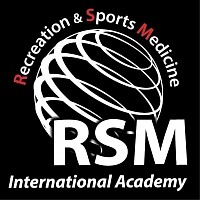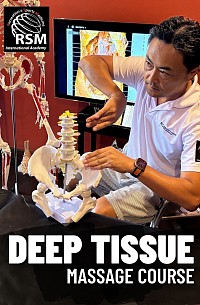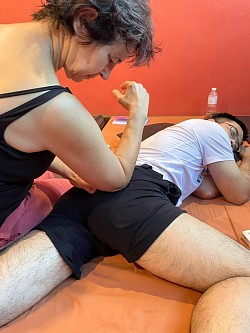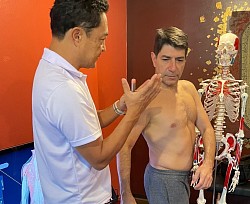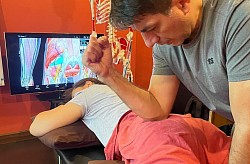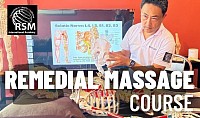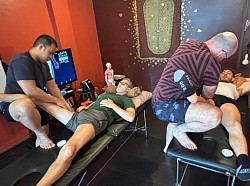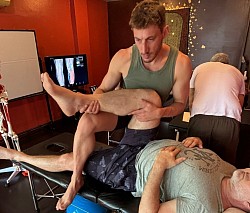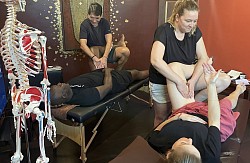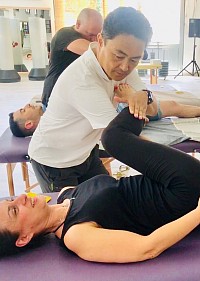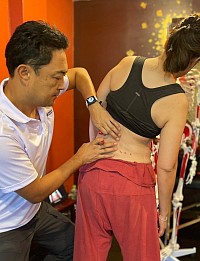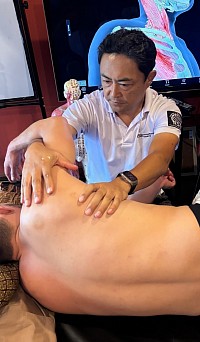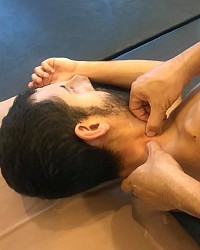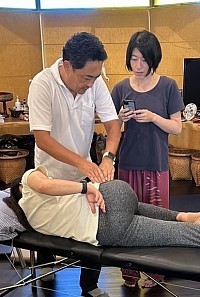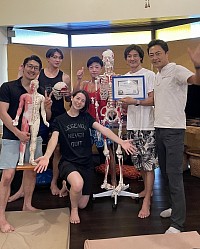Deep Tissue Massage Course
Deep Tissue Massage for Posture Correction
The Deep Tissue Massage Course at RSM focuses on postural correction by addressing muscle tension and tightness, then targeting muscles that are hyperextended and weak. You will learn to restore balance by releasing tight muscles and strengthening overstretched ones. The course addresses imbalances like Upper Cross Syndrome, Lower Cross Syndrome, Anterior/Posterior Pelvic Tilt, Lumbar Lordosis, Kyphotic Posture, Sway Back and Forward Head Posture.
🔸 RSM massage school is recommended by MDs, physiotherapists, and healthcare professionals like Dr. Amrita (UK) and Dr. Gabriele (Italy). The courses teach sports medicine techniques for releasing deep muscle tension. See our Google Maps Reviews.
Deep Tissue Massage Course Fee & Timetable
🔸 THB 9,000
(approx. EUR 226 / USD 246)
• 5 Days Intensive Course
• The course starts on Monday at 10:00
• Duration: 20 hours
(18 hours + 2 hours of Review)
🔸 Lessons & massage training
10:00-12:00 / 13:00-15:00 from Mon to Fri
Lunch break / 12:00 - 13:00 from Mon to Fri
🔸 The Remedial Massage Course will follow the Deep Tissue Massage course daily from 3:30 PM to 5:00 PM. This advanced course focuses on techniques for nerve entrapment and posture issues, including Upper and Lower Cross Syndromes.
Pelvis Tilt Assessment and Diagnostics:
Targeting Muscles for Posture Correction
In RSM’s Deep Tissue Massage course, students learn to assess pelvic alignment, focusing on landmarks such as ASIS, PSIS, greater trochanter, and pubic bone. They identify causes of pelvic tilt through palpation and functional testing, addressing muscle tension, weakness, and hip joint misalignment. Diagnostic tests like the Thomas Test, Piriformis Test, FAIR Test, and Ober Test help evaluate muscles to realign the pelvis.
🔸 Students will develop diagnostic skills for pelvic imbalances and learn targeted techniques to correct them, enabling effective treatments for posture improvement and pain relief.
Deep Tissue Massage for Lumbar Lordosis:
Palpation Techniques and Muscle Targeting for Posture Correction
Students will learn how muscle tension and imbalances affect lumbar lordosis, potentially leading to lower back pain and lumbar hernias. Key muscles, including Multifidus, Rotators, Erector Spinae, Serratus Posterior Inferior, Psoas Major, and Quadratus Lumborum, will be examined for their impact on lumbar mobility and posture. The focus will be on palpating L1 to L5 to assess mobility and muscle tension. Students will gain skills to relieve pain and correct imbalances through targeted Deep Tissue Massage techniques.
🔸 Gain expertise in lumbar assessment, including palpation and muscle tension evaluation. Learn advanced Deep Tissue Massage techniques to relieve pain, improve posture, and enhance mobility.
Deep Tissue Massage for Kyphosis:
Enhancing Thoracic Spine Mobility and Function
In this course, students will study how thoracic kyphosis and scapular mobility affect posture. The impact of intercostal muscle tension on thoracic mobility, along with the role of demi-facets and thoracic facet joints, will be examined. The effect of intra-abdominal pressure on posture and scapular positioning will also be explored. Deep Tissue Massage techniques will be used to optimize thoracic mobility, relieve tension, and improve spinal function.
🔸 Students will gain skills in assessing and improving scapular mobility and thoracic function, using targeted techniques to enhance posture, relieve tension, and increase overall mobility.
Deep Tissue Massage for Forward Head Posture:
Relieving Tension and Optimizing Cervical and Thoracic Spine Alignment
In this component, students will study muscles contributing to forward head posture (FHP), focusing on semispinalis capitis, semispinalis cervicis, levator scapulae, sternocleidomastoid (SCM), and suboccipital muscle tension. These muscles, extending from C1 to T8, affect cervical and thoracic spine alignment. The course will explore how thoracic kyphosis relates to FHP and how tension in muscles influences cervical and thoracic mobility. Targeted Deep Tissue Massage techniques will be used to relieve tension, alleviate pain, and improve spine alignment.
🔸 Students will gain the skills to treat forward head posture, applying Deep Tissue Massage to relieve tension, optimize cervical and thoracic spine alignment, and improve mobility.
Combining Targeted Deep Tissue Massage and Dynamic Postural Training Will Significantly Improve Posture
Upper Cross Syndrome and Lower Cross Syndrome require more than just Deep Tissue Massage for effective posture correction. Achieving proper posture involves addressing intra-abdominal pressure and training for proper functional alignment. Dynamic postural stability is essential for spine mobility and pelvis positioning within the kinetic chain.
🔸 Strengthening proprioceptors and training the kinetic chain are key to posture correction. RSM International Academy's instructor, Hironori Ikeda, is a globally recognized Sports Medicine and Dynamic Postural Stability Trainer who developed Balanced Ball Yoga – a Postural Correction Program backed by medical research to improve posture through dynamic training.
Certificate and Career Opportunity
The certification from RSM is designed to enhance your skill set, which is essential for physiotherapists, healthcare professionals, as well as sports trainers, yoga, and Pilates instructors. Acquiring this certification will evidence your professional commitment, allowing you to distinguish yourself in your field and set you apart from others in your country.
🔸 Please ensure that your practice aligns with the regulations of the country you are working in, as each country has its own requirements for massage practices.
